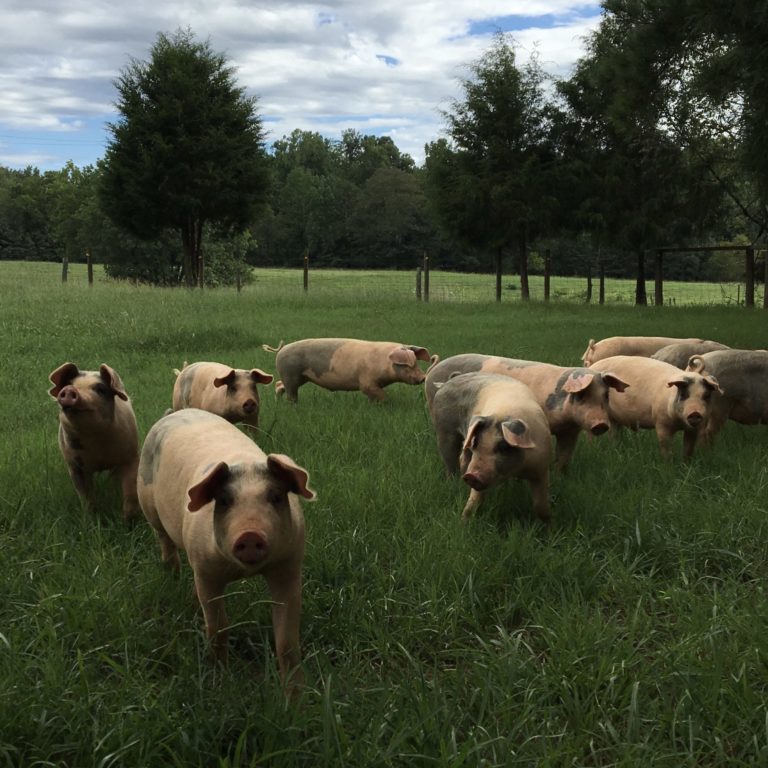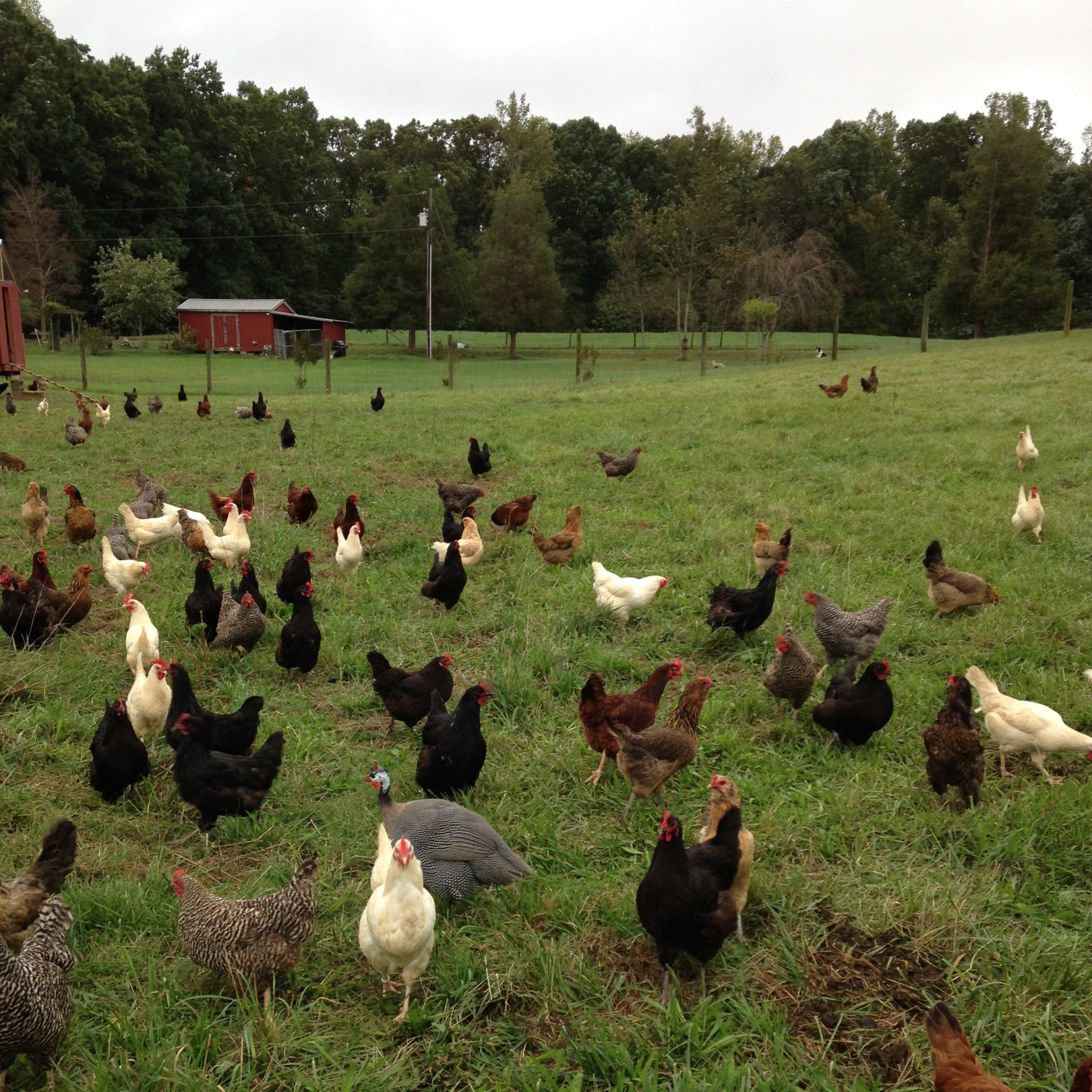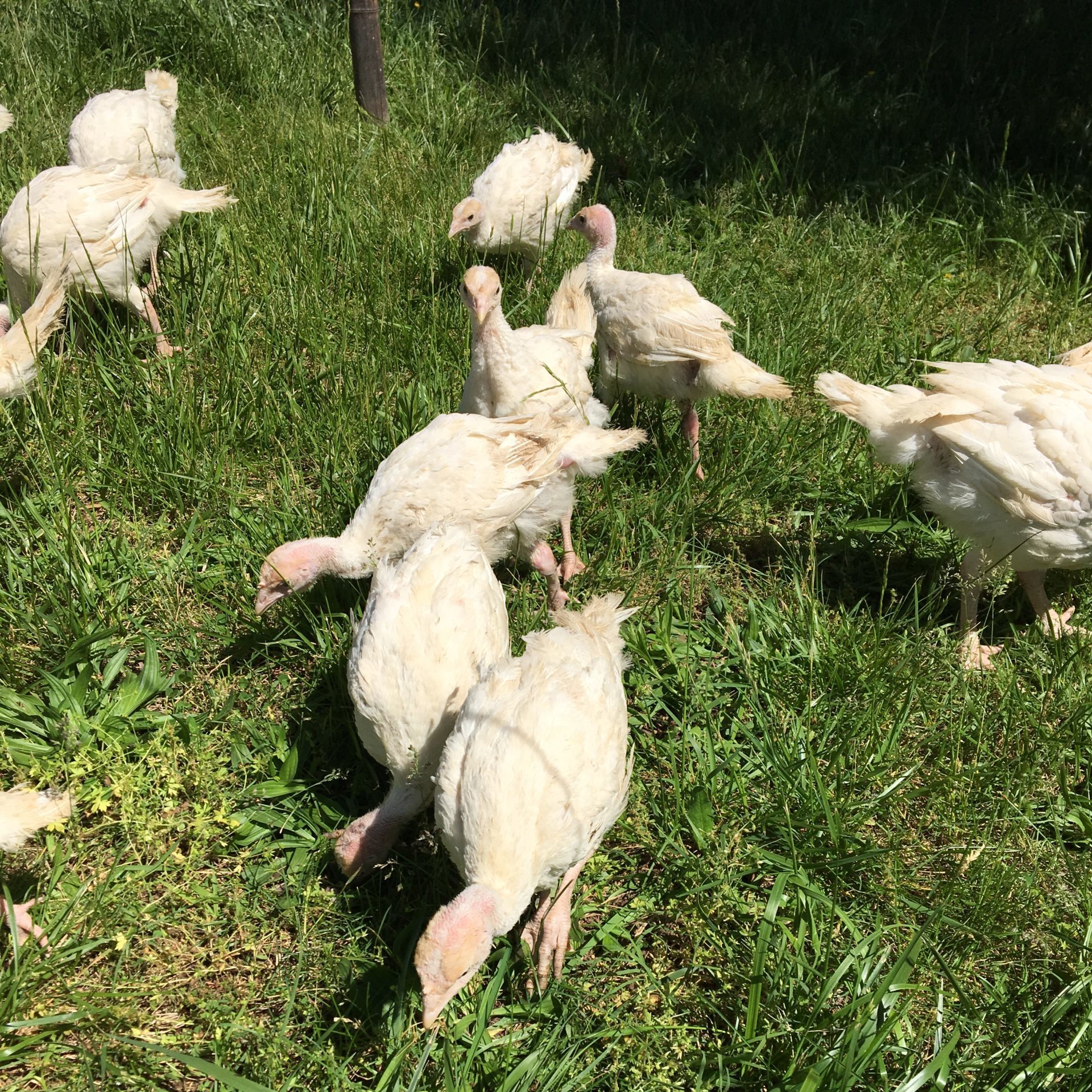Yadkin Riverkeeper on the Clean-Water Reasons to Support Sustainable Farms
By: Yadkin Riverkeeper

By Edgar Miller, Executive Director of Yadkin Riverkeeper
The early days of the pandemic brought disturbing, hard-to reconcile, news:
On the one hand, drivers in miles-long lines at food banks.
On the other, farmers dumping milk, gassing chickens, aborting piglets, and plowing over fields of lettuce.
Contrast those images with the sights at Crossings Farm in Lexington, N.C., a sustainable livestock farm that has been in the same family for 13 generations.
 Laying hens cackle in the pasture. Pigs crunch through leaves as they root in the woods or run through paddocked meadows. Dusk falls, and farmer Jennifer Rosecrans is in the hay-lined hen house with the chicks, while her husband, Ben, tends to the mamma pigs.
Laying hens cackle in the pasture. Pigs crunch through leaves as they root in the woods or run through paddocked meadows. Dusk falls, and farmer Jennifer Rosecrans is in the hay-lined hen house with the chicks, while her husband, Ben, tends to the mamma pigs.
Because Jennifer and Ben farm at a small scale, and work with small local processors and butchers, they were able to continue raising their animals normally when the pandemic hit.
Jennifer and Ben see themselves as stewards of the land, working to protect natural resources, farming in the tradition of Wendell Berry and Thomas Jefferson.
“There is a letter from Thomas Jefferson to James Jay in 1809 in which he states, ‘An equilibrium of agriculture, manufactures and commerce has certainly become essential to our independence,’” Jennifer says. “This is a perfect example of what we are trying to do here: Take care of our soil, our farm, family and our community. When you live in a place with as much family farming history as this has, you realize the gravity of the responsibility that has been placed on your shoulders. We are here to ensure the land that we leave to our children and grandchildren is clean and healthy, just as it was left to us.”
Yadkin Riverkeeper, as part of its sustainable farming initiative supported by the Waterkeeper Alliance’s Pure Farms Pure Water Campaign, is helping connect Jennifer and Ben with their local soil and water conservation district to see where the farm could install retention ponds to catch runoff that might otherwise be at risk of running into Dykers Creek and, ultimately, the Yadkin River.
As it is, the way pigs and chickens are raised at Crossings already protects our waters.
 The pigs and chickens roam outside, trampling their waste into the soil as they do, enriching the land. This, in turn, allows for thicker healthier grasses to grow, further slowing down rain water as it comes from the barn and farmyard areas. “This keeps the water where it belongs, on our farm,” Jennifer says.
The pigs and chickens roam outside, trampling their waste into the soil as they do, enriching the land. This, in turn, allows for thicker healthier grasses to grow, further slowing down rain water as it comes from the barn and farmyard areas. “This keeps the water where it belongs, on our farm,” Jennifer says.
By contrast, North Carolina’s factory swine operations raise tens of thousands of pigs at a time indoors. Industrial poultry operations do the same with chickens and turkeys.
Industrial swine operations keep waste in unlined pits the size of Olympic swimming pools, before spraying it on nearby cropland; there are 3,804 such pits in North Carolina, each of which holds about 3 million gallons of hog waste.
North Carolina’s factory poultry operations keep their 5 million tons of waste—more than 32,000 times the weight of the Statue of Liberty—in giant piles for up to 15 days at a time. The waste is then trucked to cropland.
No tests are required, in almost all cases, to see whether the soil can absorb all its nitrogen and phosphorus from that swine or poultry waste—or whether, instead, the waste will sit on the land, unabsorbed, ready to wash into the nearest creek, stream, river, or wetland during a rainstorm. As a result, we are seeing more harmful algal blooms in High Rock Lake, a major recreational lake on the Yadkin.
That lack of stewardship and regulatory oversight is why industrial poultry operations were the state’s largest and fastest-growing source of nitrogen and phosphorus pollution from animal waste in 2017. The state’s poultry population has only grown larger since then, and the threat that pollution poses has gotten worse. There are 152.6 million chickens and turkeys raised each year in the Yadkin River watershed alone, according to research by the Environmental Working Group and Waterkeeper Alliance.
While the bacon and chicken thighs from these factory operations may seem cheaper than Crossings’ meat, we all pay for industrial meat in ways that don’t come up at the cash register at the supermarket.
Beyond these risks, the pandemic has taught us the hard way corporate meat producers can’t always be counted on to put food on our table. That’s why Yadkin Riverkeeper is proud to do business with sustainable farmers like Jennifer and Ben. We bought the chicken for our annual meeting from Crossings and always ask our caterers to use locally raised meat and produce.
As you can see, our communities need better protection from waste on factory-sized animal operations and our small sustainable family farms need our support.
We need to increase regulatory oversight of large-scale poultry production and manure waste management, including siting and permitting requirements for new poultry houses. As it stands now, these poultry houses can open with little more than a building permit—even in our 100-year floodplain.
We need more funding, at both the state and federal levels, to enable farms to implement best-management practices. We also need increased funding for local food processing infrastructure and local market development. As the pandemic has shown us, our most reliable sources of food may be small producers, rather than agricultural giants.
Supporting local farms and local businesses is always a smart practice. The pandemic has driven this home.
“Our farm Mission Statement is ‘Bringing family, farming, and community together,’” Jennifer says. “Some days it feels like a tall order, but in the end we know we are right where we are supposed to be.”